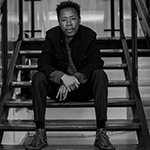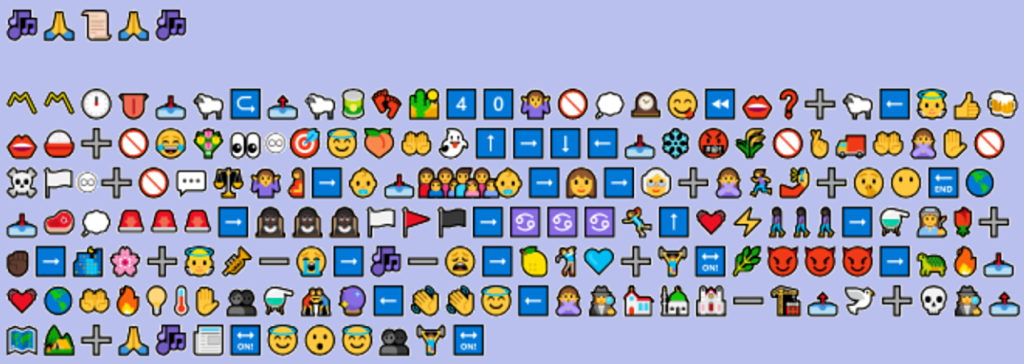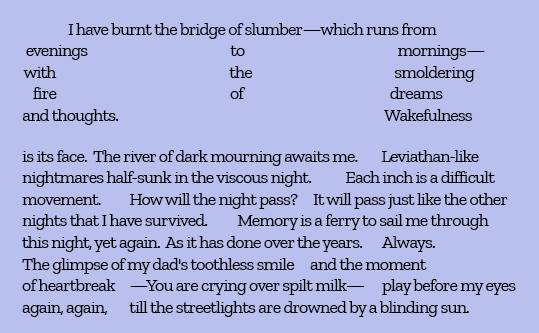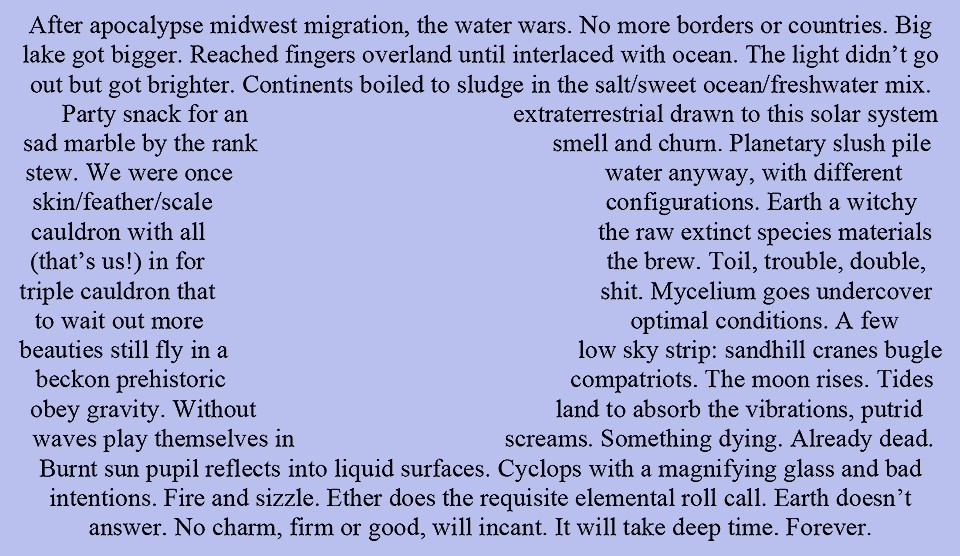The Obeah Man
Once upon a time, in a Brooklyn branch of Duane Reade down Borough Hall, I called upon an obeah man. Summoned from the search engines of Google, Eric Miah appeared before me as a link to Ifalasa Enterprises. Intoning himself a Yoruba priest, his brown face was lit by LED cowrie shells dancing along the perimeter of his homepage. Chipmunk cheeks announced an appetite for offerings. Smizing eyes were crowned by stringy, grey-streaked, fuckboi hair. He advertised his services as an acolyte of Ifa, plus a psychic on the side. Prices listed as fair.
And though he seemed to me oily and sly, in that moment I prioritised the community college teaching job that wouldn’t let me quit it, the noisy city tying my ankle in a bungee rope trap making every escape attempt a mere visit, the nonreciprocal friendships with people by whom my authentic self was discomfited, the men next to whom I’d lain and still felt lonely, the lack of love in my world, and that family and their lies from which I’d freed myself taking a no-contact knife to each and every tie. Why did I have to be alone?
I needed to know.
And so, once upon a time, before I learnt to cope, before l knew how to accept my singularity with equanimity, on a white winter’s day, I donned over-the-knee, camel Uggs, a camel, shearling coat, and boarded the express, green-line train up to El Barrio in Spanish Harlem to learn my fate. I was off to see el brujo, who in his East 116th apartment, sat in wait of me. And there occurred the inception of a violation from which it would take three years to become free.
‘This is some good odu’. Said to me with a let-me-convince-her smile and affirming nod. The horse-shoe-shaped opele chain had again and again been flung down. Some kola nuts facing the ceiling. Some with eyes on the ground.
This pronouncement declared, Eric’s fat Puerto Rican friend nodded. His jowls shaking. His light skin turning red. Sweat dripped into the cotton neckline of his green jersey. He bounced like a puppy. Eager to please. Quick to agree with whatever this priest man said.
It was then, again, something chook me in my belly and say leave. Me alone, this woman in a basement with two men I don’t know. One of whom I hadn’t even been told would be there. The fat one who just appear in the apartment when I was in Eric’s bathroom changing my clothes. Stripping offensive brown leggings before making my approach to his so-called temple’s door. Now I sat on the hard, concrete floor hosting open flames around the enclosed room. And still I say lemme stay and hear this, what he call it, odu.
Why?
Because my life wasn’t working.
I placed above my disquiet the restlessness inside questing for more. To fix every avenue falling apart, I’d repaired to the religiousness I abhorred. To the very Awos my sister, Sherrie, and I used to make fun of, wining down to the floor, imitating all the sexiness these robed priests had to put on just to pour some libations before they gods and mostly-female congregation, opening the way they say for them to be told life-altering information.
Peddlers, oh sorry, they prefer to be called priests of Ifa are initiates to the orisha Orunmila, deity of destiny, and practitioners of his system of divination that uses a chain with nuts, coins, or shells to read what’s needed to restore mystical harmony. And apparently, for me, that somehow required Eric to say, ‘You’re going to have to be the one to take care of your mother’.
Steups.
I wasn’t paying $75 to hear about that woman. ‘Me?’ I obliged with a humour-him question. ‘Yes, you’. Eric observed me closely. ‘She’s going to have a long life’. Fuck. The woman was only in her fifties. Arite, doh roll yuh eyes. Look down. My jaw was tight. Wah de ass dis have to do with me and about what I come to inquire? I buy some time.
In the waiting silence, I fiddled with the sleeve of my red, gold, and cream cardigan. Rearranged my side-swept legs. Pulled the fishtail of the white skirt I was told to wear over my slippers. Rolled my hip to let another portion of my soft thigh cushion the impact of the unpaved floor. Tried to look demure.
Eric didn’t defer. ‘The people you think will be there for her in the end won’t be there. Your mother will need you. She won’t have anyone’. I failed to see how that was my problem. She have four daughters and two uh them does still talk to her. Cyah see Ericka, her current favourite, the one with the make-amends therapist, ditching the bitch. Neither Sherrie, her finally-see-me, co-dependent, last child baby leaving Smiley in an old folks’ home. But since he not going and done, ‘what about my sisters?’ Lewwe move this along.
Right into a prolonged speech like he at the podium and trying to breach the stubborn minds of his congregation instead of one paying client who could very well see that Eric’s NYU Bachelors of Psychology degree, displayed prominently on the wall just before the glass-paned doors leading out into the square-walled yard, did not qualify this man to justify the shards of ice my egg-donor’s abandonment, verbal disparagement, emotional instability and manipulation had driven into the bronchia of this daughter who had once felt like she couldn’t breathe without her as just being a generational divide. I would not agree it was up to me to see her side. Except he wouldn’t done talk. So, I cried.
I figured that’s what someone who cared would do when confronted with the image of their wizened mother deserted and dying. Not enough to make my eyeliner run eh or even smudge, naturally. Just a delicate sniff, rapid blinking back the tears gathering and threatening to overflow. I still had to take the train back to East Flatbush after this. But having given these expectant men an appropriate show, maybe we could finally get to what I wanted to know.
Why didn’t I just go?
What is it that taught me my final stand against a life out of my control should be appeal to some spiritual force? How many of my actions were being conducted through grandfathering genes until compelled to intervene, I’d manually lift the tracks and re-chart my own course?
That day, I sat on that floor fiddling with my gold necklaces through Eric’s didactic talk of my ancestors being over-protective; and newly remembered harms wrought by my male cousin; and the benefits of being sexually uninhibited cause who doesn’t look back and wish they’d screwed around more; and, though they want me to go and I desperately want to leave, they can’t move me and I won’t be exiting that job for a minute, not until something’s fulfilled and the time is appropriate; and ways to start my own business; and me being married in the spirit to Orunmila and needing to receive icofa or his hand, and and and
Till I felt reduced. Talked down to. While he made me feel small. Till my head swirled, tangled. I hadn’t wanted to come at all. Any time I ventured into the world of candles, prayers, or coins, cards, runes, offerings of sweet bread or goat loins my life derailed. But then, at the advice of Michelle, a Columbia counsellor being trained, I tried once more to embrace this proclivity.
Downstairs in Duane Reade on the corner of Court Street searching the make-up aisles for the perfect shade of gold eye shadow and red lip-gloss, I could have conceded that my other search on my iPhone was yielding no hope. Every other return on varied orisha keyword entries hurtled me to the steps of Spiritual Baptist churches that still imposed Christian saints over African deities. I had already been baptised in those intermediaries. My whole Trinidadian father-side family was steeped in syncretised sanctity. That never had and was not working for me. Nothing was. In the last few years, my life had become a reverse-Midas touch where every aspect turned to shit. I needed the real gods to put a stop to it. But Yoruban practitioners operated in secret. They did not flash their wares on the internet. There were no sightings until Google conjured Eric.
Reaching out, the network dropped, and Eric was rude the first two times. I should have taken that as a sign. Likewise, all the damn simmi dimmi at the front door emblazoned with a setta emblematic symbols, and the pompous, officious way he incline his head when letting me in like he forget I coming and wish instead he was left alone on his Saturday morning. And the no wife home and busy, stuffy apartment with big, clunky furniture and too much shells and colourful insignia hanging from the walls, and too many products pack up in the bathroom clawing they way out every cupboard and shelf. And the show-offy way he make a big to do before he knelt down to light the cigar and the smoky bush fire and the red candle asking The Gatekeeper if I good enough to enter before he grab the handle on the iron door at the bottom of rough-hewn concrete steps, telling me to duck my head before treading into his sacred temple basement.
Lawd, do I have no self-preservation whatsoever? A strange man from the internet in another borough taking me down underground a first-floor compound with high concrete walls and burglar-proof wire on top all around and I follow?
Stayed below? For over an hour, for a final rattle of bones thrown like pitching dice. A new, burgeoning smile. A glance up to catch fat friend’s eyes and instruct and share whatever it was he was reading there. Dark, caterpillar eyebrows raising to mimic Eric’s. Both men impressed. And excited. Like a doctor and his apprentice about to hack into a pig. Exhilarated at the prospect of a good-character life they got to further man-splain and authoritatively dissect. I saw the glee. I knew whatever added deliverance was coming did not bode well for me.
And yet I stayed.
‘Your daughter has something others will need. Some important work to do. She’s going to help a lot of people’. Eric’s side profile smiled. He traced his square fingers along the short chalk lines he’d drawn while delivering this edict. Now his mesmerised eyes did not leave the bare concrete floor bearing his markings. Reading. To me, though, these strokes were just etchings, resembling those from The Count of Monte Cristo, Ericka’s favourite movie, carved into the walls of his cell numbering all his trapped years.
‘I don’t have children’.
Was that fear on his face? Definitely doubt. Reassessment. Backtracking and confusion. Questions and refusal. ‘You don’t have children? A little girl? Your daughter?’ Both men’s eyes lasered into mine. The weight of their stares pressed me down, searching for the lie. Buh whey yuh go hide a chile? And why?
‘Nope, Ah’en ha no chirren’. This man qualify? He know how to read them bones he throwing? This man I’d interviewed on the phone. Half Puerto Rican, half Pakistani or Palestinian, or one uh them P’s practicing a distinctly Yoruban religion. Eric looked down at his book. Wait. Was that a glossary? The man need to consult an encyclopaedia to interpret the chalk drawn lines he self inscribe? Questions kept pushing the curtain of belief aside. I paid close attention to the man behind the title on which I was being asked to rely.
I paid attention, thus this memoiristic recollection, while Eric’s brow knitted and fat friend’s head swivelled like this was a tennis match. The dogged tugging inside me to make sure and peer closely kept at it as I turned to glance into the shadowed corner behind me. A dried calabash bowl holding water proffered before the candlewax-encrusted, blue and white clad, 2-foot figurine of a Black mermaid standing there. Yemoja, their divine sea mother. Eric had lit a tealight candle on top her head and talked to her when we three had entered before he led us to the altar of sorts in the fireplace mantle. I turned to watch the other lit candles and little bush fires blazing, left to flourish and flare. Observed the dancing smoke. Inhaled the nag champa scenting the air. Played with my gold bracelets stacked up my right forearm. Shook the gold bangles on my other wrist, enjoying the lilting chime as I discreetly checked the face of my gold watch wondering how much time before…
‘And I don’t want none. Ah doh ha no chirren cuz I don’t want any’. Jeez, what about my job? You know, what I came here to find out about. Again, having to push these arbitrary subjects along. At my resolute assertion, Eric’s salt-and-pepper head lifted, and the Cheshire cat smile came into view. Yuh know these god-like types like nothing more than a declaration of independence to try to lord their chauvinism all over you. So right on cue, ‘Oh, I know you don’t want any. I could see it on you. But Oshun wants a daughter. You were supposed to have her already. A child to pass on your gifts to. To teach. She’s anxiously waiting to be born. You can’t have her with just any man, though. It has to be a man of your same stature spiritually’.
What the fuck? My head jolted and three pairs of gold earrings struck my cheek, enacting consternation. My eyes speared his questioningly. Was he…? ‘No, no, not me’. His cheeks tightened with the denial. ‘The man, the child’s father, won’t stay, though. But you must not grieve when he does go because then the placenta won’t attach properly’. This man was again lecturing me on female biology. ‘And then that’ll form a rift that will take years of work, and bindings, and forgiveness to bridge, if ever. So, you have to love her and want your daughter because she chose to come. Read to her and make her know she’s welcome. Because this is what Oshun wants of you. It’s her will being done.’
This Oshun, another Black mermaid who swam across the Atlantic alongside ships transporting the ancestors like cargo in what racist academic texts still refer to as “trade”. Another of the orishas uprooted from West Africa, and now worshipped across the diaspora. This deity of the river. Coquette, seductress. Mother and inspirer of artists. Bestower of riches. Adorned in all gold. Her colours – yellow, gold, coral, amber. Dancer, warrior, wife, and mistress. Sweet honey her food, kept in a pot about and under her waist. Birther of twins. Goddess of love, lust, and all beautiful things. With a veil drawn over her face. Flipping through my mental wikipedia, drawing forth knowledge of all I’d ever read of her, I pondered what this unknown spirit had to do with me. Time to wrap this up. ‘I don’t have cash. You take debit?’
And then that Saturday, I did leave.
Still, I returned to Eric’s just once more. After about a week. To wash my head because, apparently, I had enemies, nuh. Or maybe he liked the ease with which my PayPal payment for the previous reading cleared immediately. Either way, threat of badmind people and predatory men on my street or not, invoking maljeux guaranteed he got another $160 out of me. Trinidadians don’t take too kindly to evil eye and we grow up using bush baths to cast it aside. Eric read the ingrained culture in me right.
So, I showed up again to his place, but this time on a weekday, using one of those many, lovely holidays CUNY’s calendar allots in the Fall. I stepped out of his bathroom this time dressed all in white. White spaghetti strap tank above a yellow bra; tight, white long-sleeved, v-neck top; a different, long, flared, white skirt; and different gold at my head, ears, neck, wrists, waist, ankles, and toes. His eyes formed o’s. His daughter’s did, too. ‘ooOOOOH, I love all your pretty jewellery,’ the cute six year old said to me before she half perched in my lap with her half-naked doll and regaled me with all her school tales including that of the little boy who sat next to her in class.
Eric kept going downstairs to his basement and coming back up to tilt his head to the side as he stood in the frame of the sliding glass doors, studying me. I felt like I might get the hose ’fuss it take him and his quiet, aiding wife so long to compose whatever ceremony he had downstairs cooking while I played semi-patiently. Iz a simple wash. Me’en understan all de hassle and de back and forth. He done make me hadda go all over Spanish Harlem from one botanica to another, pulling out the little espanol que recuerdo to buy the herbs and flowers and oils and butters fuh de maljeaux, which any charlatan priest worth his salt supposed to do his damn self. And now I still had to spend an hour combing a dolly hair and wondering what this Ifa-derivative, Santeria man hadda prepare so much, and what next.
Huh, what next indeed. I didn’t realise Eric was giving such credence to my dress. And that the next Nigerian obeah man I visited seeking authenticity would, too. My appearance was my own expression of self, not some premeditated homage being paid to spirits I’d only read about and not served given my extended paternal and maternal family’s devout half-Ifa-half-Christianity that feared “dem devil ting” that inherently intrigued me even as a child. Their own genes that would not subside in spite of their hiding, their chiding, their deriding. The work of what they self planted inside and all it bring.
Not uprooted that day. Their religiousity passed through the blood — the work of generations to take shape. The work of conscientious years of my life to break.
And not pass on.
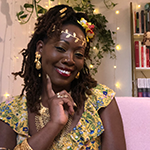
Camille U. Adams is a writer from Trinidad and Tobago. Camille’s debut memoir has been selected as a finalist in the Restless Books Prize for Immigrant Writing 2023 and her essays have received multiple Best of the Net nominations. Camille earned her MFA in Poetry from CUNY and is a current Ph.D. Candidate in Creative Nonfiction. She is a 2022 Tin House alum and an inaugural 2023-24 Tin House Reading Fellow. Camille was also awarded an inaugural fellowship from Granta Magazine’s 2023 Nature Workshop and a memoir fellowship from Roots Wounds Words. She teaches English and is a CNF Editor.

 BACK TO ISSUE
BACK TO ISSUE